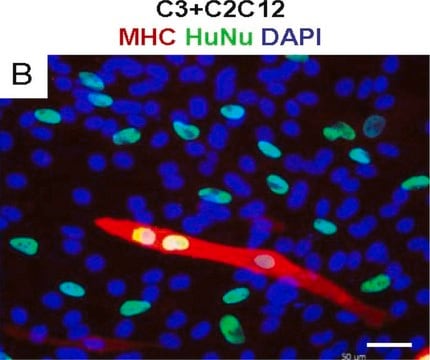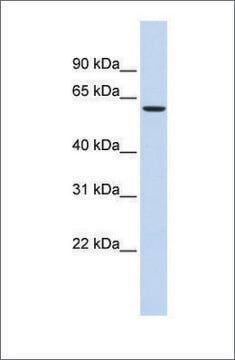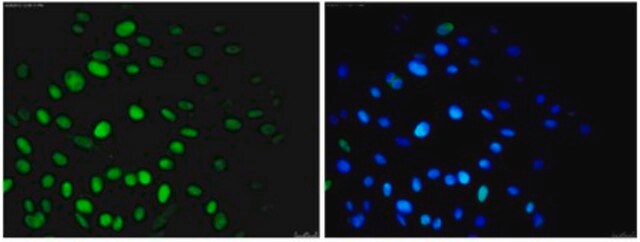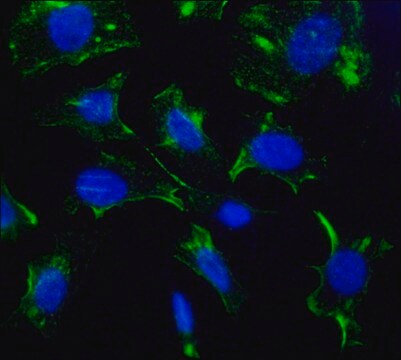MAB1281C3
Anti-Nuclei Antibody, clone 235-1, Cy3 conjugate
clone 235-1, from mouse, CY3 conjugate
Szinonimák:
HuNu
About This Item
Javasolt termékek
biológiai forrás
mouse
Minőségi szint
konjugátum
CY3 conjugate
antitest forma
purified immunoglobulin
antitest terméktípus
primary antibodies
klón
235-1, monoclonal
faj reaktivitás
human
technika/technikák
immunocytochemistry: suitable
izotípus
IgG1
kiszállítva
wet ice
célzott transzláció utáni módosítás
unmodified
Általános leírás
Immunogen
Alkalmazás
Stem Cell Research
Stem Cell Research
Pluripotent & Early Differentiation
Developmental Neuroscience
Mesenchymal Stem Cells
Neurodegenerative Diseases
Minőség
Fizikai forma
Tárolás és stabilitás
Analízis megjegyzés
Human foreskin fibroblasts (SCC058)
Egyéb megjegyzések
Jogi nyilatkozat
Nem találja a megfelelő terméket?
Próbálja ki a Termékválasztó eszköz. eszközt
Tárolási osztály kódja
12 - Non Combustible Liquids
WGK
WGK 2
Lobbanási pont (F)
Not applicable
Lobbanási pont (C)
Not applicable
Analitikai tanúsítványok (COA)
Analitikai tanúsítványok (COA) keresése a termék sarzs-/tételszámának megadásával. A sarzs- és tételszámok a termék címkéjén találhatók, a „Lot” vagy „Batch” szavak után.
Már rendelkezik ezzel a termékkel?
Az Ön által nemrégiben megvásárolt termékekre vonatkozó dokumentumokat a Dokumentumtárban találja.
Tudóscsoportunk valamennyi kutatási területen rendelkezik tapasztalattal, beleértve az élettudományt, az anyagtudományt, a kémiai szintézist, a kromatográfiát, az analitikát és még sok más területet.
Lépjen kapcsolatba a szaktanácsadással








